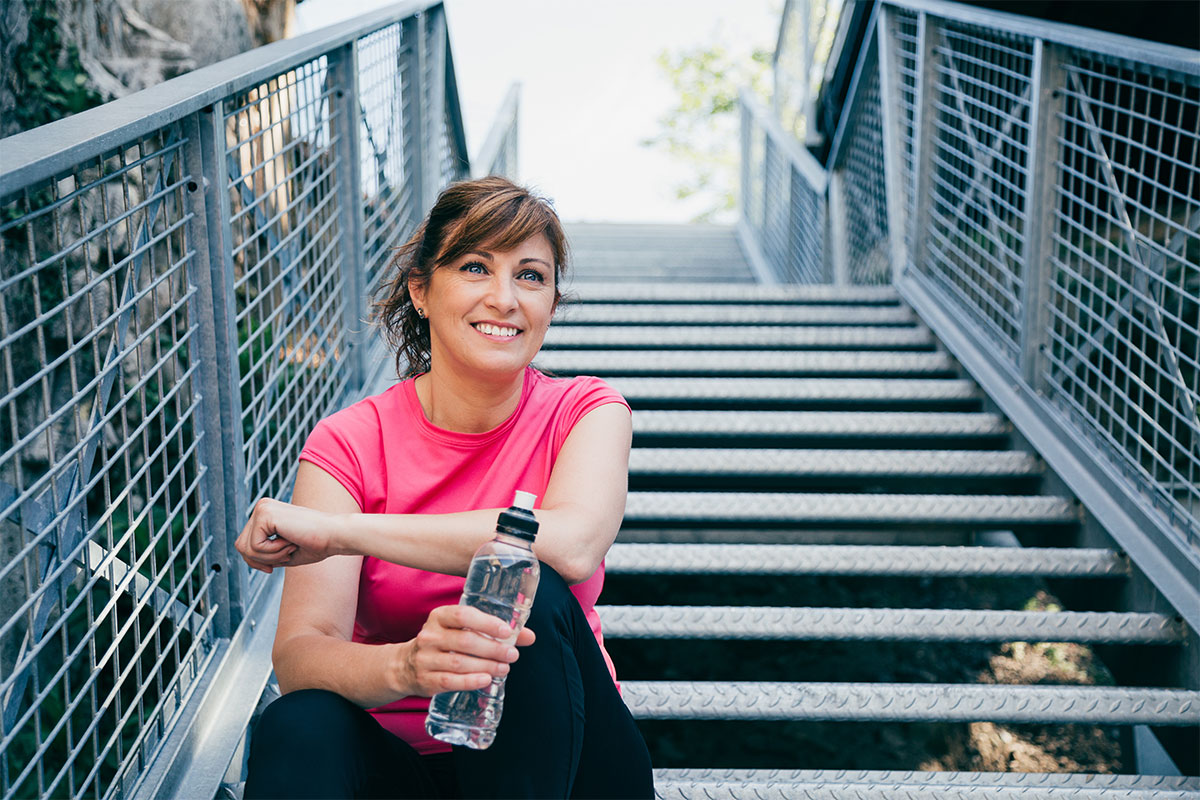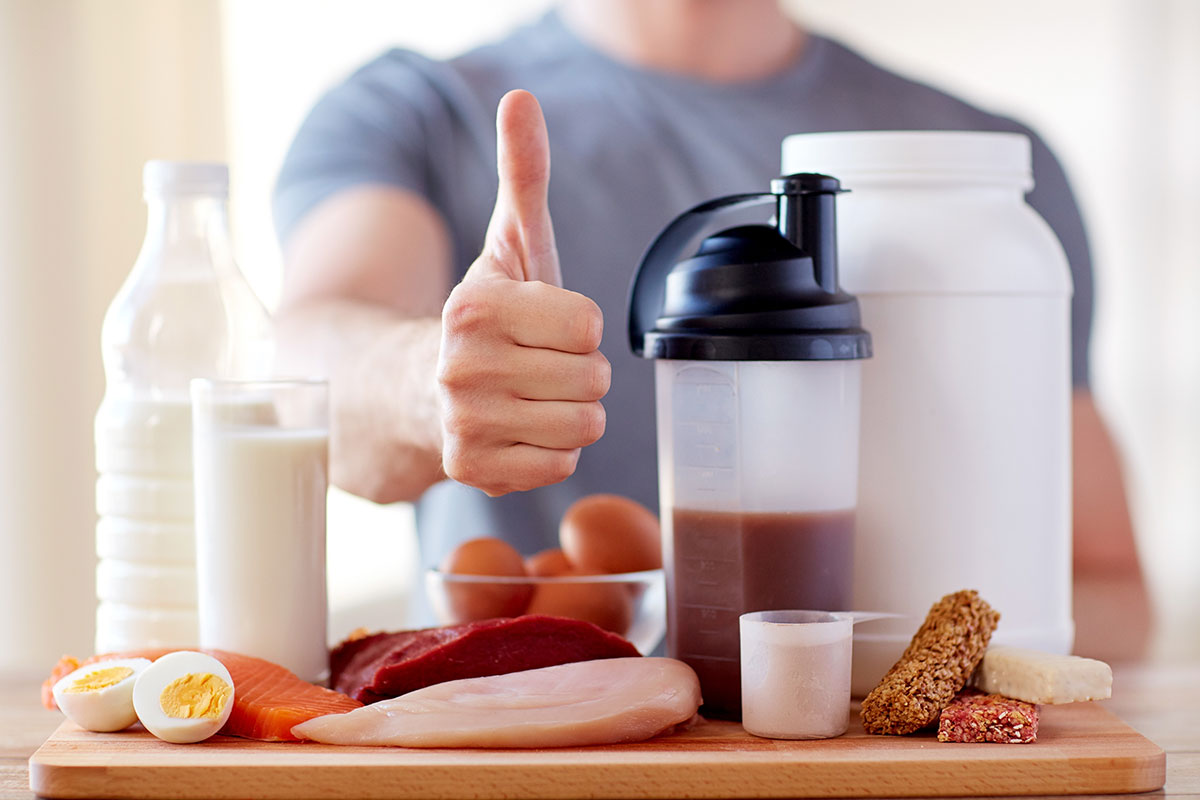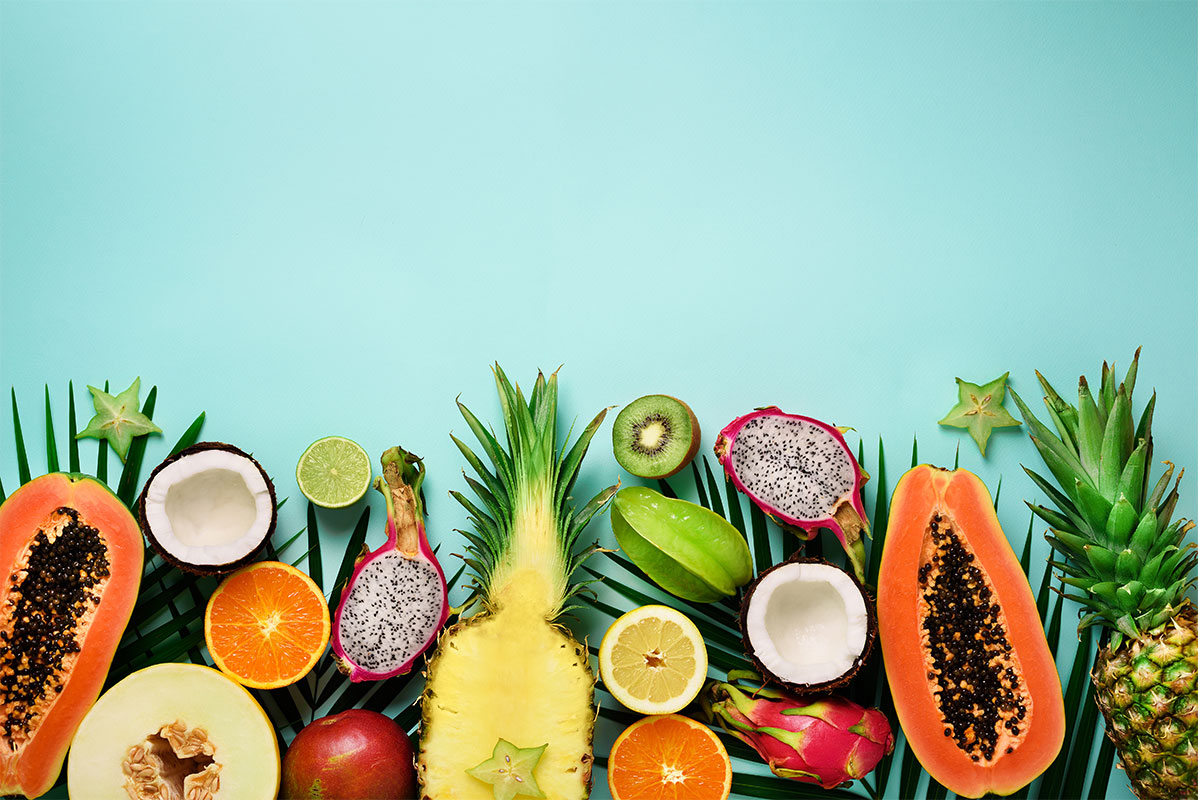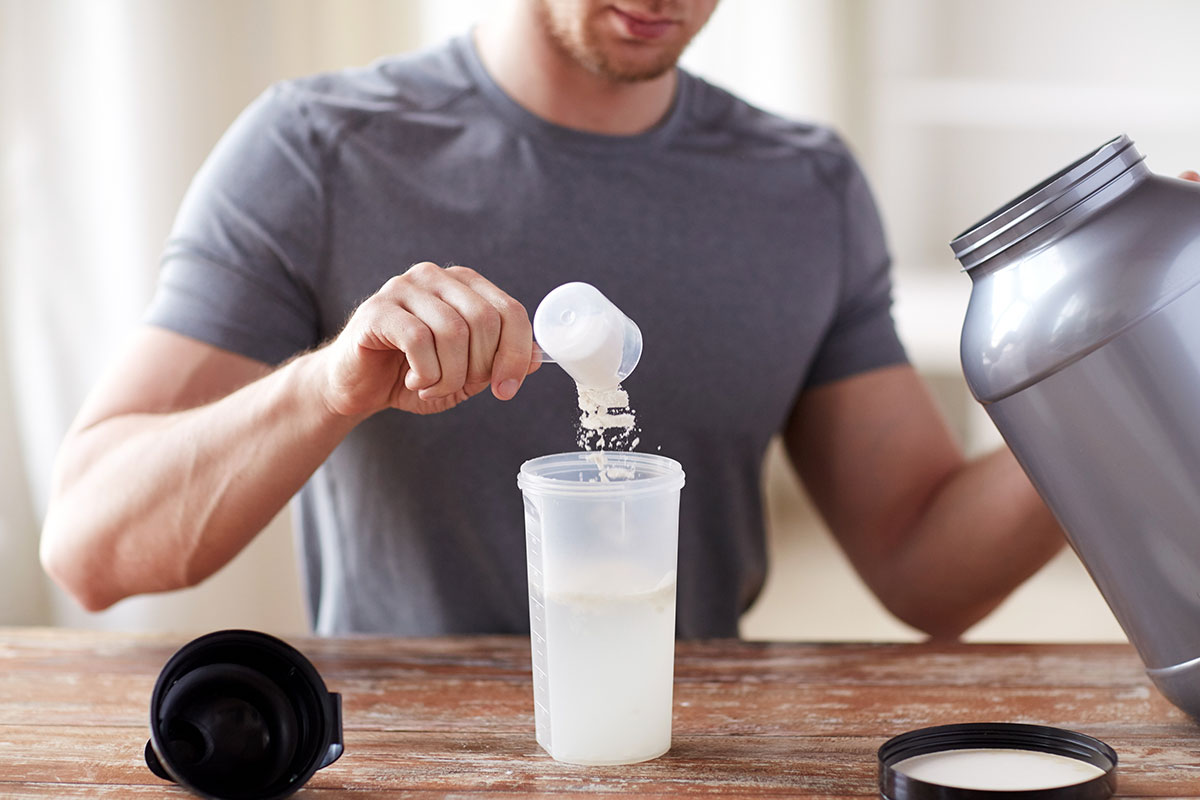Why am I Gaining Weight Despite Diet and Exercise? │ QA
If you’re careful with your nutrition, working out weekly, and still experiencing problems with your weight, take a moment to read this QA.


I just started to go to LA Fitness. I’m a 23-year-old female, I weigh 205 lbs., and I’m 5’4″. I struggle with food. I’ve been on multiple diets, lost weight, restricted myself and end up giving up because it wasn’t sustainable, gaining it back. Calorie counting just seems very tedious and writing things down as well. Is there a way of eating that doesn’t involve measuring out everything in order to lose weight? Or any advice/suggestions?
– Marissa R.

I agree that you should remove the focus on portions and calorie restriction. For chronic dieters, experts in weight management recommend making permanent lifestyle changes the goal. Creating realistic goals and developing healthy habits that last are key to an “un-diet” approach. No mention of calories or measurements in The National Weight Control Registry’s summary of its registrants’ four most common habits*: eat breakfast every day, weigh themselves once a week, watch less than 10 hours of TV per week and exercise about 1 hour daily.
Knowledge is power! I believe that a simple foundational understanding of nutrition can help frame your outlook and shift your thinking away from weight, towards nourishing your body. Have you read our Living Healthy articles on nutrition basics, weight loss tips, a Mediterranean style of eating, mindfulness, and social support? For more in-depth learning consider a mass open online course (MOOC) on nutrition fundamentals. Several are free (taken as an audit, not for credit) and available from trusted sources like respected U.S. universities with credentialed instructors.
*The NWCR is the largest prospective investigation of long-term successful weight loss maintenance. http://www.nwcr.ws/Research/default.htm accessed 6/4/2019
Resources:
– Debbie J., MS, RD
This article should not replace any exercise program or restrictions, any dietary supplements or restrictions, or any other medical recommendations from your primary care physician. Before starting any exercise program or diet, make sure it is approved by your doctor.
Some questions have been edited for length and/or clarity.
 Have a nutrition question? Our registered dietitian is ready to help!
Have a nutrition question? Our registered dietitian is ready to help!
Email nutrition@lafitness.com or submit your question below and it may be featured in an upcoming article!
If you’re careful with your nutrition, working out weekly, and still experiencing problems with your weight, take a moment to read this QA.
Blood sugar control isn’t easy. These are Debbie’s top recommendations for how to address weight control with Type II Diabetes.
Does Intermittent Fasting give you enough time to pack the day's protein? Our registered dietitian helps clear up the confusion!


I am a member at LA Fitness in San Antonio Texas, just signed up! Ever since I turned 50 I have been gaining weight with the same diet. I don’t drink sodas and I eat at home most of the time; lean poultry, tilapia, quinoa and sometimes rice. I try not to add too much salt to food. I have a busy life and I don’t have time to cook complicated meals or eat 8 times a day. Even though I hardly eat bread, I do like corn tortillas. Obviously, my metabolism has slowed down.
– Rosa T.

Sounds like the “same diet” you’ve followed isn’t working for you now. From what you describe, the lean protein and plain grains are okay if the volume is appropriate. Check your portions as you should target 3-4 oz. poultry/fish and ½-1 C quinoa/rice (or 2-3 corn tortillas) per meal. Look at all the other foods that make up your diet and compare to recommended serving sizes.
Consider filling up on fruits and vegetables which provide bulk with fewer calories. Great that you avoid soda, but make sure other beverages aren’t loaded with sugar either – particularly coffee drinks or juices/smoothies. Regarding your metabolism, remember that reductions in activity and lean body mass are usually to blame. Use your new membership by getting in both calorie-burning aerobic exercise and muscle-retaining strength workouts.
– Debbie J., MS, RD
This article should not replace any exercise program or restrictions, any dietary supplements or restrictions, or any other medical recommendations from your primary care physician. Before starting any exercise program or diet, make sure it is approved by your doctor.
Some questions have been edited for length and/or clarity.
 Have a nutrition question? Our registered dietitian is ready to help!
Have a nutrition question? Our registered dietitian is ready to help!
Email nutrition@lafitness.com or submit your question below and it may be featured in an upcoming article!
If you’re careful with your nutrition, working out weekly, and still experiencing problems with your weight, take a moment to read this QA.
Blood sugar control isn’t easy. These are Debbie’s top recommendations for how to address weight control with Type II Diabetes.
Does Intermittent Fasting give you enough time to pack the day's protein? Our registered dietitian helps clear up the confusion!


My name is Patrick. I am a new member to the gym since in January. Since joining, I go 4 times a week (Monday – Thursday) and want to optimize my results. I work out for about an hour and fifteen minutes each time, mostly focusing on the upper body and abdomen. I drink a protein shake every day and try to also eat an avocado. I have trouble it seems gaining weight even though I’m consuming 2,500+ calories a day usually. I also drink a Gatorade every time I go to the gym and try to eat a lot of nuts with my turkey at every meal. I don’t have a lot of time to prep food so like buying pre-packaged cold turkey. I can eat straight out of the package or pre-packed snack mixes of dried fruit and nuts. I have gained about 10 pounds in the last 5 months, but results are slow to come. I do the same workout every time hitting nearly every muscle group in my body sometime during my workout. What are the best workouts/machines to use for upper bodybuilding and what should I be eating?
– Patrick

Ten pounds gained is a testament to your efforts thus far! Based on the loose description of your intake it sounds like you’re getting dense foods like nuts, dried fruit, and avocado in. You say you drink 500 calories worth and I’ll assume that is from the two beverages you’ve mentioned – a protein shake and Gatorade. Not bad. Hopefully, you are drinking other fluids! Make sure they also have calories like milk (alternatives) and juice.
For solid foods – even quick/packaged items – maximize every bite by making sure it’s topped, soaked or loaded with condiments. For instance, make instant oatmeal with milk instead of water and use extra mayo packets on a turkey sandwich or wrap. High-calorie ready to eat food includes cheese cubes, full-fat sweetened yogurt, potato salad, bars suitable for hiking, and shelf-stable meal pouches (though they may taste better heated).
Not fixing your own food is a disadvantage to healthier eating, as most other energy-rich items are loaded with sugar, salt and fat or contain few fruits and vegetables: canned chili, fried chips, fruit strips/leather, jerky, burritos, egg rolls, etc. Try to take time the night before to pack a small cooler of a few healthier staples. For example, hard-cooked eggs or a single-serve peanut butter tub with a bagel, raw apples or celery sticks as snacks.
– Debbie J., MS, RD
This article should not replace any exercise program or restrictions, any dietary supplements or restrictions, or any other medical recommendations from your primary care physician. Before starting any exercise program or diet, make sure it is approved by your doctor.
Some questions have been edited for length and/or clarity.
 Have a nutrition question? Our registered dietitian is ready to help!
Have a nutrition question? Our registered dietitian is ready to help!
Email nutrition@lafitness.com or submit your question below and it may be featured in an upcoming article!
If you’re careful with your nutrition, working out weekly, and still experiencing problems with your weight, take a moment to read this QA.
Blood sugar control isn’t easy. These are Debbie’s top recommendations for how to address weight control with Type II Diabetes.
Does Intermittent Fasting give you enough time to pack the day's protein? Our registered dietitian helps clear up the confusion!


I am trying to lose weight but have had no luck. I’m 44 years old. I’m somewhat athletic but have serious knee issues. I weigh 197 lbs., trying to get to 180 lbs. My question is: Is there a bad time to eat fruit? Is late in the day not a good idea? I like fruit as a snack, but I’ve heard that late in the day is not a good idea.
– Andy M.

In twenty years as a dietitian, I rarely see an excess of raw fruit be the culprit in someone’s weight gain. The 10-20 grams of fructose bound with water and fiber from a serving of fruit isn’t a concern. It’s the other sources of fructose (sodas, sweetened teas, bakery desserts) that have added sugars which will prevent you from losing weight since they are usually excess calories.
Eating fruit in the evening as an alternative to higher calorie and fat desserts is ideal. As a snack, a 16 oz fruit smoothie is probably best earlier in the day – unless you’re using it as a recovery drink from a heavy afternoon workout. A plain apple with a few nuts or hard-cooked egg makes a great between meal snack!
– Debbie J., MS, RD
This article should not replace any exercise program or restrictions, any dietary supplements or restrictions, or any other medical recommendations from your primary care physician. Before starting any exercise program or diet, make sure it is approved by your doctor.
Some questions have been edited for length and/or clarity.
 Have a nutrition question? Our registered dietitian is ready to help!
Have a nutrition question? Our registered dietitian is ready to help!
Email nutrition@lafitness.com or submit your question below and it may be featured in an upcoming article!
If you’re careful with your nutrition, working out weekly, and still experiencing problems with your weight, take a moment to read this QA.
Blood sugar control isn’t easy. These are Debbie’s top recommendations for how to address weight control with Type II Diabetes.
Does Intermittent Fasting give you enough time to pack the day's protein? Our registered dietitian helps clear up the confusion!


Hi, I’m a member of LA Fitness. I’ve been working out for a few years and I’m in very good shape. I’m 37 years old, 5’8″, 142 pounds, and cut. I don’t want to put on more weight or look bulky but want bigger muscles. I have 2 questions: 1) Do I need to change isolate protein every once in a while, as the body may get used to the same brand? 2) Do you recommend taking monohydrate creatine? I don’t know if I should take creatine, please comment. Thanks.
– Mo L.

Hi Mo, here are your answers!
1) If it’s not in combination with vitamins/minerals or other compounds, then it isn’t necessary to cycle the brand of isolate protein supplement. It’s not like you build up a tolerance to peptides. If you’re consuming the same isolate day in and day out, then I’d say to switch it up with REAL FOOD protein to provide amino acid and nutrient variety as well as solids to digest. Protein supplements are great for convenience and to save time but shouldn’t be relied upon for the basics, like meeting daily needs.
2) If someone is already following excellent workout and dietary plans to support muscle growth but wants more results, then creatine supplementation may be an intervention to try. Although your body makes some, additional creatine is useful for increasing creatine phosphate reserves to improve exercise performance and strength during heavy resistance training. Creatine monohydrate is the form most studied and shown to be safe and effective at 0.1 g creatine/kg of body weight. (Protocols for loading dose and maintenance vary.)
– Debbie J., MS, RD
This article should not replace any exercise program or restrictions, any dietary supplements or restrictions, or any other medical recommendations from your primary care physician. Before starting any exercise program or diet, make sure it is approved by your doctor.
Some questions have been edited for length and/or clarity.
 Have a nutrition question? Our registered dietitian is ready to help!
Have a nutrition question? Our registered dietitian is ready to help!
Email nutrition@lafitness.com or submit your question below and it may be featured in an upcoming article!
If you’re careful with your nutrition, working out weekly, and still experiencing problems with your weight, take a moment to read this QA.
Blood sugar control isn’t easy. These are Debbie’s top recommendations for how to address weight control with Type II Diabetes.
Does Intermittent Fasting give you enough time to pack the day's protein? Our registered dietitian helps clear up the confusion!
Be the first to know about exclusive
content, deals and promotions